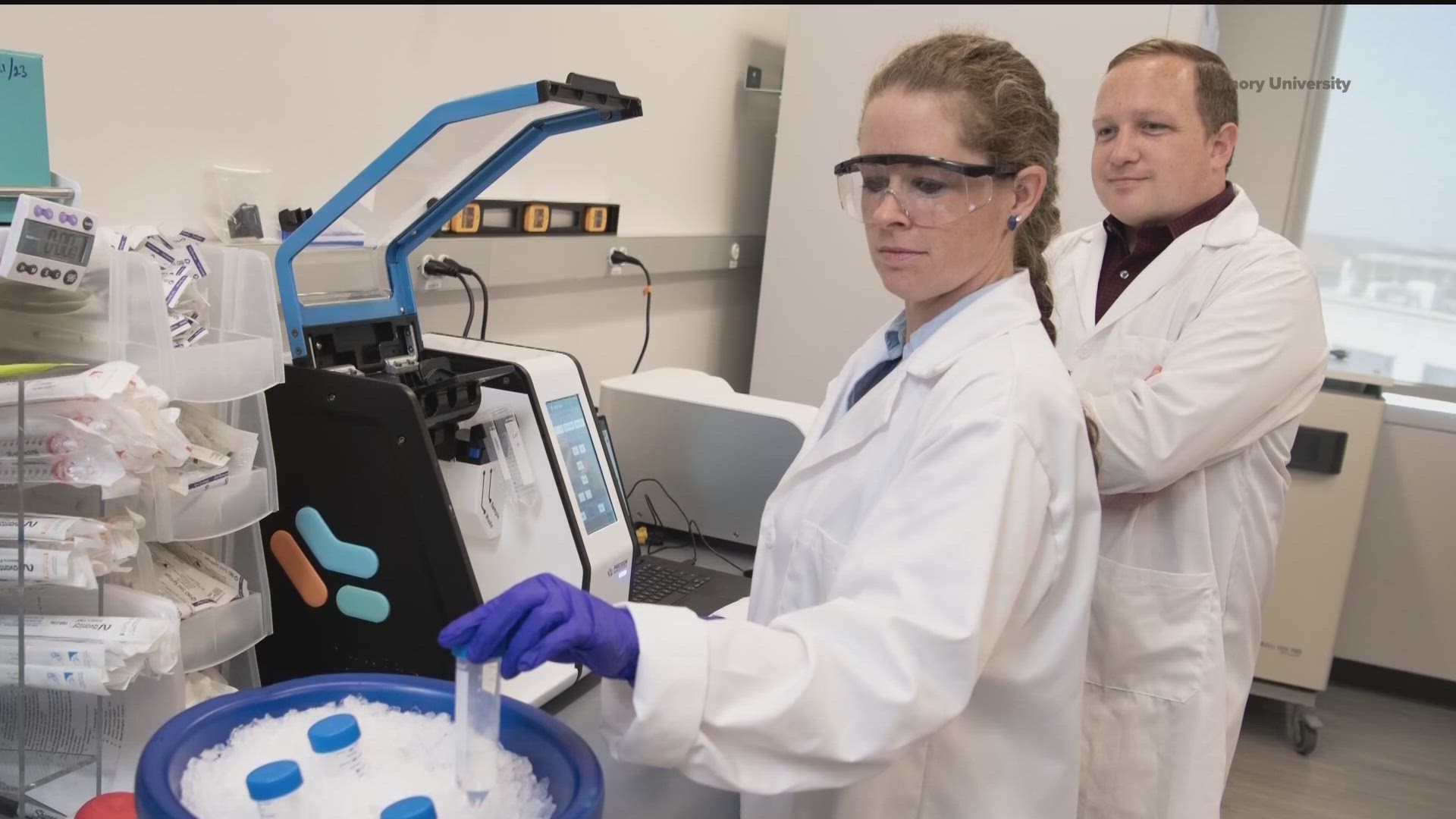ATLANTA — President Joe Biden announced Wednesday that Emory University is getting $24.8 million to drive breakthroughs in health research and infectious diseases.
Professor of Biomedical Engineering at Emory University and Georgia Tech Philip Santangelo said the funding could help develop new ways to treat and potentially cure diseases like cancer, autoimmune disorders, and infectious diseases.
"You have to be bold," he said. "It's a high-risk, high-reward program. You can't go in and say, 'We're going to make this small, incremental change.' You're going to have to say, 'Hey, we're going to make big changes. We need to make big leaps in science.'"
The money comes from a scientific research fund Congress created in 2022, the Advanced Research Projects Agency for Health, or ARPA-H.
"It is supposed to help the people, the United States of America. Unfortunately, the citizenry suffers from a lot of different diseases. So we need to build technology that allows us to address them," Santangelo said.
Santangelo said that after months of written proposals and summaries, Emory University was the first to receive this kind of funding from the group.
"You first have to write a three-page summary of what you're going to do and why it's important," he explained. "Then you submit and you wait. About six weeks later, we actually got a response that said we would like you to put in a full proposal. Then you get 30 days to put in the full proposal and that's it. So you've got one month and the entirety of the proposal is probably about 400 to 500 pages in total."
Santangelo explains their research will involve using mRNA technology to control one's immune system, in the hopes of fighting life-changing, and sometimes incurable, diseases.
mRNA vaccines helped fight COVID-19, but Santangelo said their approach for other diseases would be slightly different.
"We're not using it just to express an antigen, so something like the spike protein. Instead, what we're doing, is we're using this technology to manipulate how the immune system functions," he said.
The scientists said this could help boost people's immune systems or help bodies become more tolerant to prevent rejection of organ transplants.
"Some of the aspects of what we're doing, if successful, will get out into the clinic as fast as possible," he said.
Santangelo's lab will be working with other researchers, including some from Yale and the University of Georgia.
For Santangelo, the mission is also personal.
"My wife actually had breast cancer, and so it was kind of thing where I felt like we need to do something," he said, "maybe this is where my focus should go."
Brian Katzowitz, with Emory University, explained this could not only change healthcare research, but it could also save lives.
"This is a win for everyone and a win for Atlanta, too, because we're able to take a lot of the expertise that Georgia Tech has in the field of biomedical engineering, and apply it to this type of research," he said.

